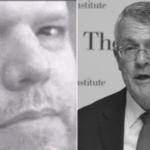No Criminal Conviction for ATO Whistleblower Richard Boyle

Australian Taxation Office whistleblower Richard Boyle does not have to spend any time in prison, which is not only splendid for him and his partner Louise Beaston, but a hell of a lot of people nationwide breathed a sigh of relief on hearing Richard wasn’t going to stew away in prison over having legitimately exposed the ATO misapplying a garnishee practice to make figures look good.
South Australian District Court Judge Liesl Kudelka did not record a criminal conviction against Boyle’s name, after he pleaded guilty to four minor charges, as part of a plea deal that saw him admit guilt to a handful of charges, as opposed to the 24 separate minor criminal offences hung around his neck in mid-2020, or the threat of life imprisonment via 66 charges laid against his name in 2019.
Boyle ran his public interest disclosure defence in October 2022, arguing that he’d been protected under the Public Interest Disclosure Act 2013 (Cth), and in his July 2024 findings, which upheld the initial 2023 rejection of Boyle’s defence, Justice David Lovell confirmed that the whistleblower was protected in going to the press, but not in the preparatory acts he took to build his case.
The sentencing of Boyle to a 12 month good behaviour bond on Thursday 28 August 2025 brings to a close the saga of the three high profile whistleblower prosecutions that were launched whilst the Morrison government was in power, under then attorney general Christian Porter, although the final episode involved one of those endings where everything has been left up in the air.
After over seven years of having been dragged across the hot coals via threat of prison, Boyle is now a free man, however the whistleblower protections that failed him ultimately, are still in place, and the years of slow-drip psychological torture Boyle was made to endure whilst awaiting final judgement will certainly deter others privy to corrupt government practices from going to the press.
A whole lot of trouble for telling the truth
Boyle blew the whistle on the tax office internally in mid-2017, as it had been applying a garnishee practice to dip into small business accounts at an earlier point than was protocol, and this was done to bump up figures. Because Richard exposed this, the misapplication of the practice was brought to an end and several independent inquiries into the matter vindicated his claims.
The April 2018 Four Corners report Mongrel Bunch of Bastards exposed this malpractice, along with other cases, to the public.
But Boyle only ever went to the press after he blew the whistle correctly, as per the Public Interest Disclosure Act (PID Act), which meant he put together a disclosure that he sent off internally to his ATO seniors, and in accordance with the law, an employer must rectify a disclosure.
The ATO did not resolve the matter, however, and Boyle went to the ABC. For his troubles, he was raided by the Australian federal police at the time that the report aired. The former tax office employee then had 66 criminal offences laid against his name in respect of preparatory acts he’d taken to support his disclosure. The maximum penalty Boyle was then facing for speaking up was 161 years in prison.
The SA District Court and the SA Supreme Court both confirmed that it was right, as per the PID Act, that Boyle should be charged with a reduced 24 criminal offences that amounted to photographing client details and recording conversations with colleagues and then loading this information onto an encrypted email account that his lawyer could access but never did, as were Boyle’s instructions.
So, the PID Act, as it stands today, failed to protect Boyle, because the criminal immunity under section 10 only covered his disclosing information to the press but not the preparatory acts he took to back up his case. And this continues to be the case for any public service employee, who might be considering blowing the whistle, and takes preparatory acts to support their case.
Boyle had attempted to seek special leave to appeal the criminal immunity matter to the High Court late last year, but this was denied. The whistleblower earlier this year, went on to publicly draw then attorney general Mark Dreyfus’ attention to the fact that eight of the charges against his name had been called out as bogus in court in 2022 but still stood, which resulted in five more being dropped.
The ATO whistleblower then pleaded guilty simply to four charges that broadly represented the guts of the 66 charges that were originally laid against his name in 2019.
Justice Kudelka found on Thursday that Boyle had “engaged in this criminal conduct” as he “genuinely believed” he was “justified” in doing so “for the greater good”. The SA District Court judge then said some other things about there being “no room in our society for individuals to be able to take the law into their own hands”, even though these were fairly ho-hum preparatory acts.
Whistleblowers left unprotected
The Public Interest Disclosure Act was drafted by former AG Dreyfus during his first stint as chief lawmaker in 2013.
In opposition in late 2021, as the three high profile whistleblower protections were underway, those being Boyle, ADF lawyer David McBride and ex-ASIS agent Witness K, along with his barrister Bernard Collaery, Labor MP Dreyfus decried the Coalition’s failure to apply the 2016 Moss report reforms to the PID Act and vowed to do so himself if re-elected.
Following his May 2022 reappointment to the position, Dreyfus then announced in November that year that he’d be progressing an initial round of reforms to the PID Act prior to mid-2023 to facilitate the running of the then launched National Anti-Corruption Commission (the NACC), and following on from this, the AG had promised to progress another major overhaul of the Act.
The attorney’s department produced the November 2023 Public Interest Whistleblowing Reforms Stage 2 consultation paper, which contemplates the reforms to be progressed as part of the major overhaul, which was said to be needed as whistleblower protections were failing disclosers, and it included contemplation of extending the section 10 criminal immunity to cover preparatory acts.
However, after the May 2025 federal election, when Labor returned to office in a landslide, PM Anthony Albanese did not reappoint Dreyfus to AG but rather nominated Michelle Rowland to take over the portfolio. So, the major overhaul of the PID Act has never been progressed.
On 31 July 2025, Rowland announced that the first sixth-monthly report on the PID Act had been produced, and the “significant improvements” made to the PID Act by Dreyfus in 2023 – those that were to facilitate the NACC – “are working”. And in terms of any further amendments, the AG simply says the government “is considering further reforms to improve whistleblower protections”.
As for Richard Boyle, Sydney Criminal Lawyers would like to congratulate him on standing firm, speaking truth to power and coming out the other end to tell the story.







